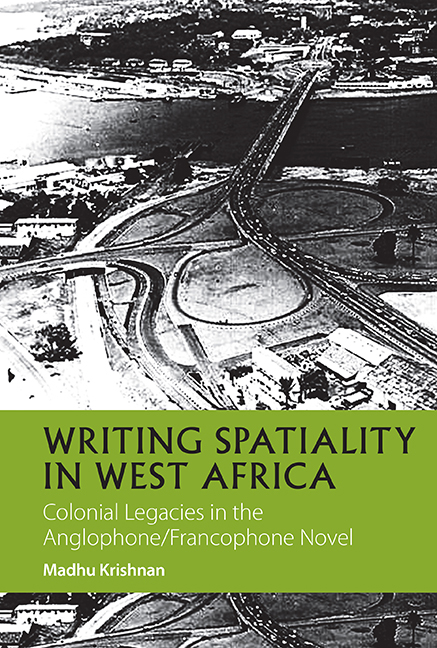Book contents
- Frontmatter
- Contents
- Acknowledgements
- Abbreviations
- Introduction
- 1 Spatiality from Empire to Independence
- 2 Post-independence Disillusionment and Spatial Closures
- 3 Social Space Beyond the Public Sphere: Women's Writing and Contested Hegemonies
- 4 Cosmopolitanism, Migration and Neoliberalism in the Wake of Structural Adjustment
- Conclusion
- Bibliography
- Index
3 - Social Space Beyond the Public Sphere: Women's Writing and Contested Hegemonies
Published online by Cambridge University Press: 15 October 2019
- Frontmatter
- Contents
- Acknowledgements
- Abbreviations
- Introduction
- 1 Spatiality from Empire to Independence
- 2 Post-independence Disillusionment and Spatial Closures
- 3 Social Space Beyond the Public Sphere: Women's Writing and Contested Hegemonies
- 4 Cosmopolitanism, Migration and Neoliberalism in the Wake of Structural Adjustment
- Conclusion
- Bibliography
- Index
Summary
In this study so far, gender has functioned as a counterpoint to the constitution of space that emerges across the texts I have been discussing. From the Drinkard's courtship of his wife and her subsequent companionship in The Palm-Wine Drinkard to the Faithful Mother's house in that same text; from the progressivist rationale for the ‘new school’ put forth by La Grande Royale as a counter to the patriarchal structures of the Diallobé in Kane's L’aventure ambiguë to the centrality of sexual conquest and redemption by Beti's Medza; from the manner in which women – both through the ‘fallen’ characters of Aina and Beatrice One and the ‘redemptive’ love of Beatrice Two – serve as what Stratton once termed ‘an index of the changing state of the nation’ in both versions of Ekwensi's People of the City to the gendered division of labour in Les soleils des indépendances; gender has been pivotal to the larger workings of spatiality in each text. In order to unpack the ways in which gender, constructions of sexuality and the development of the family have been constituted through the production of colonial and postcolonial space, this chapter turns its attention to the interconnected functions of productive and reproductive labour in the creation, evolution and maintenance of spatiality. Focusing particularly on the gendered dimension through which the international division of labour emerges, I begin by revisiting the construction of spatiality as inherently mediated by a series of sexual divisions and then turn my attention to a selection of writing published from the 1970s to 1990s by prominent women writers: Mariama Bâ's Une si longue lettre (1979); Ama Ata Aidoo's Changes: A Love Story (1993); Buchi Emecheta's The Joys of Motherhood (1979) and Calixthe Beyala's C'est le soileil qui m'a brûlée (1987). By so doing, I aim in this chapter to recuperate the historical potency of gender as a site through and upon which space is administered and gesture towards the lateral and alternative visions encoded therein.
In The Nation Writ Small: African Fictions and Feminisms, 1958–1988, Suzan Z. Andrade identifies space as central to the ways in which women's writing – and writing about women – has been conceptualised and received.
- Type
- Chapter
- Information
- Writing Spatiality in West AfricaColonial Legacies in the Anglophone/Francophone Novel, pp. 97 - 136Publisher: Boydell & BrewerPrint publication year: 2018



